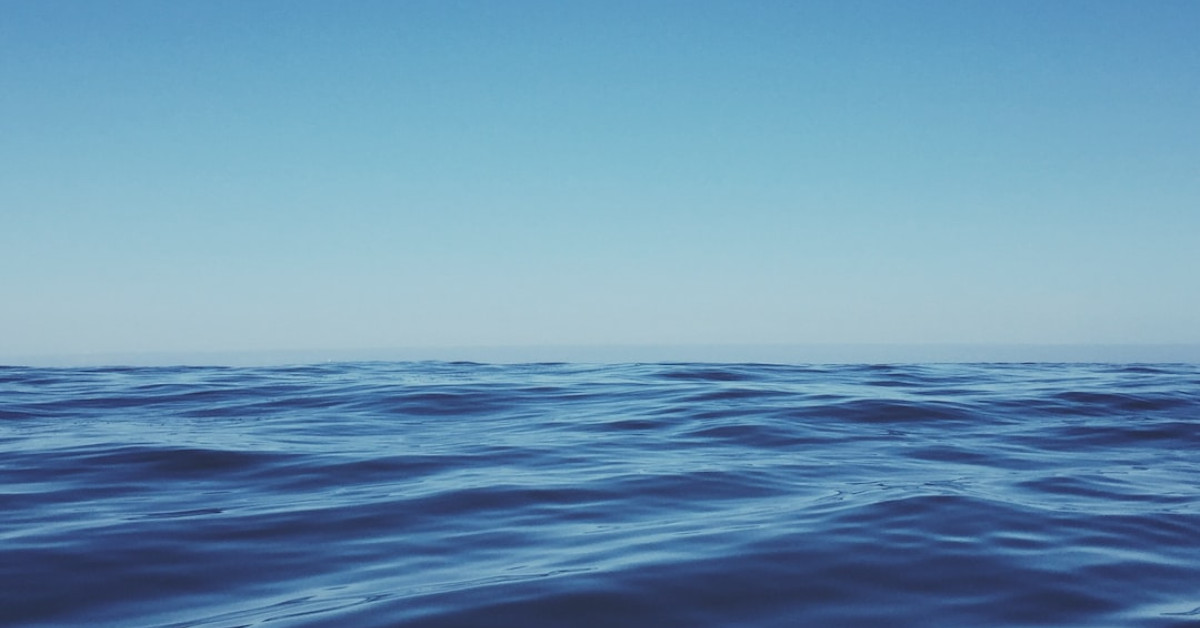Deep sea exploration is a subject that has fascinated humans for centuries. The mysteries and wonders that lie beneath the ocean’s surface are vast and largely unexplored. From vibrant coral reefs teeming with life to eerie shipwrecks and elusive species, the world beneath the waves offers a wealth of opportunities for discovery and adventure. In this article, we will delve into the intriguing world of diving and explore the various aspects of deep sea exploration.
The Essence of Diving
The Thrill of Adventure
Diving allows individuals to unlock a whole new world beneath the ocean’s surface. As one descends into the depths, a sense of awe and wonder takes hold. The concept of weightlessness and the ability to breathe underwater create a unique and exhilarating experience. The feeling of exploring uncharted territory and encountering fascinating marine life is a thrill like no other.
Whether it’s advanced diving meditation in the crystal-clear waters of the Maldives or exploring the underwater caves of Mexico’s Yucatan Peninsula, each dive offers the opportunity for adventure and discovery.
The Gateway to a Hidden Universe
When one takes the plunge into the world of diving, they gain access to a hidden universe full of vibrant colors, diverse ecosystems, and fascinating creatures. The underwater world is a delicate balance of life and beauty, with coral reefs acting as nurseries for countless species and providing important habitats for marine life.
From tropical fish to majestic manta rays and graceful sea turtles, the underwater world is a sight to behold. Each dive is a chance to come face to face with marine creatures that most people only see in documentaries or pictures. The experience of being in their presence is truly humbling.
The Preservation of History
Deep sea exploration isn’t just about the present; it also offers a glimpse into the past. Shipwrecks, some of which have been lying on the ocean floor for centuries, hold stories waiting to be unraveled. These underwater time capsules provide valuable insights into our history, allowing us to learn from the past and understand pivotal moments in maritime history.
Diving into the depths to explore these wrecks is like stepping back in time. The rusted hulls and decaying artifacts tell tales of voyages gone wrong and brave seafarers who risked their lives for adventure and discovery. By documenting and preserving these wrecks, divers play a crucial role in ensuring that history isn’t forgotten.
Equipments Required for Deep Sea Exploration
Dive Gear: A Window to the Underwater World
When embarking on a deep sea dive, having the right equipment is paramount. Here are a few essentials for any diver:
- Dive Mask: A well-fitted dive mask allows clear vision underwater and ensures a comfortable seal to keep water out.
- Wetsuit or Drysuit: Depending on the water temperature, a wetsuit or drysuit provides insulation to keep the diver warm during extended dives.
- Buoyancy Control Device (BCD): This inflatable jacket helps divers achieve neutral buoyancy, allowing them to easily ascend or descend as needed.
- Regulator: A regulator connects the diver’s tank to their mouthpiece and allows them to breathe compressed air underwater.
- Fins: Diving fins come in various styles and help divers move through the water efficiently.
- Dive Computer: A dive computer tracks crucial information such as depth and dive time, helping divers plan their dives and avoid decompression sickness.
- Underwater Camera: Many divers enjoy capturing the beauty they encounter underwater, and an underwater camera allows them to do so.
By investing in high-quality dive gear and ensuring it is well-maintained, divers can enhance their safety and enjoyment while exploring the deep sea.
The Challenges of Deep Sea Diving
While deep sea diving offers numerous rewards, it also poses its fair share of challenges. It is essential to understand and mitigate these challenges to ensure a safe and enjoyable diving experience.
Underwater Pressure and Decompression Sickness
As divers descend into the depths, the pressure on their bodies increases. The deeper one dives, the greater the pressure exerted on their body tissues. This increased pressure can lead to decompression sickness, commonly known as “the bends.”
Decompression sickness occurs when dissolved gases, such as nitrogen, form bubbles within the body due to rapid ascent or inadequate decompression. To prevent this condition, divers must adhere to safe ascent rates and follow decompression guidelines. Dive tables or dive computers are used to calculate and monitor the necessary decompression stops.
Limited Visibility and Navigation
Visibility underwater is often limited, especially in certain locations or during specific weather conditions. Murky water, low light, and suspended particles can reduce visibility, making it challenging to navigate and spot potential hazards.
To navigate effectively, divers rely on their compasses, dive site maps, and buddy systems. Proper training and experience enhance a diver’s ability to navigate safely, even in challenging conditions.
Cold Water and Hypothermia
Deep sea exploration often takes divers into colder waters, which can lead to hypothermia if precautions aren’t taken. Hypothermia occurs when the body loses heat faster than it can produce it, causing a drop in body temperature.
To combat the cold, divers wear wetsuits or drysuits that provide insulation and retain body heat. Proper layering and thermal protection are crucial to prevent hypothermia and ensure a comfortable dive.
Marine Life and Hazard Awareness
While the underwater world is teeming with captivating marine life, it is essential to approach it with caution. Some creatures may display aggressive behavior if they feel threatened or provoked. Divers must exercise respect for the marine environment and adopt appropriate behavior to minimize disturbances and maintain their safety.
Education and knowledge about potential dangers, such as venomous marine life and strong currents, help divers stay safe and enjoy their underwater adventures responsibly.
Types of Diving
Recreational Diving
Recreational diving is the most common form of diving and encompasses a range of activities suitable for beginners and experienced divers alike. Whether exploring coral reefs, swimming alongside marine life, or discovering underwater caves, recreational diving offers a wealth of possibilities.
Recreational divers typically attain certifications such as Open Water, Advanced Open Water, or Rescue Diver, which provide them with the necessary skills and knowledge to safely enjoy recreational dives.
Technical Diving
For thrill-seekers looking to push the boundaries of traditional recreational diving, technical diving opens a world of exploration and adventure. Technical divers use specialized equipment and techniques to explore deeper depths, longer dive times, and more challenging environments.
Technical diving requires extensive training and certifications, such as Decompression Procedures or Trimix Diver. It is crucial for technical divers to have a thorough understanding of gas mixtures, decompression theory, and equipment maintenance.
Cave Diving
Cave diving is a specialized form of diving that involves exploring underwater cave systems. These intricate and often dangerous environments require specific training, knowledge, and equipment. The exploration of submerged caves is an extreme sport that demands advanced skills and experience.
Cave divers must be proficient in buoyancy control, line laying, and managing potential hazards unique to cave environments. Due to the advanced nature of cave diving, proper training from certified instructors is essential for those interested in this challenging pursuit.
Best Dive Sites Around the World
Great Barrier Reef, Australia
The Great Barrier Reef is one of the most iconic and biodiverse dive destinations in the world. Stretching over 2,300 kilometers along the northeastern coast of Australia, it is a UNESCO World Heritage site and home to an incredible array of marine life.
Divers exploring the Great Barrier Reef can experience vibrant coral gardens, encounter majestic sea turtles, swim alongside reef sharks, and spot the elusive Maori wrasse. With countless dive sites and a variety of depths to suit divers of all levels, the Great Barrier Reef is a must-visit destination for underwater enthusiasts.
Blue Hole, Belize
The Blue Hole in Belize is a natural wonder that attracts divers from around the globe. This world-famous dive site is a massive underwater sinkhole, measuring over 300 meters in diameter and nearly 125 meters deep. The perfectly circular hole is surrounded by vibrant coral formations and offers the opportunity to explore awe-inspiring vertical walls.
Divers descending into the depths of the Blue Hole can encounter impressive stalactite formations and a variety of marine life, including nurse sharks and massive groupers. This bucket-list destination provides a once-in-a-lifetime diving experience.
Silfra Fissure, Iceland
Silfra Fissure in Iceland offers a unique diving experience like no other. Located in Thingvellir National Park, Silfra is a freshwater fissure filled with incredibly clear glacial meltwater. Divers can float between the North American and Eurasian tectonic plates, witnessing the geologic marvels that shape the landscape.
The visibility in Silfra is outstanding, often exceeding 100 meters. The vibrant colors of the submerged rocks and the opportunity to explore two continents underwater make this site an unforgettable diving destination.
SS Yongala, Australia
For wreck diving enthusiasts, the SS Yongala in Australia is a must-visit. This sunken passenger ship, lying off the coast of Queensland, offers a time capsule of maritime history. The wreck is now a thriving artificial reef, attracting an abundance of marine life.
Divers exploring the SS Yongala can encounter giant Queensland groupers, curious sea turtles, impressive schools of barracuda, and a vast array of colorful fish. This dive site provides a unique opportunity to combine history and marine biodiversity in one extraordinary experience.
Conclusion
Diving opens a door to a mesmerizing world filled with wonders and endless possibilities. From the thrill of adventure to the preservation of history, deep sea exploration offers an extraordinary and immersive experience. By understanding the challenges, equipping oneself with the right gear, and exploring some of the world’s best dive sites, individuals can embark on a journey into the depths that will leave them forever captivated by the wonders below. So, take a deep breath and dive into the world of deep sea exploration. An underwater paradise awaits.










